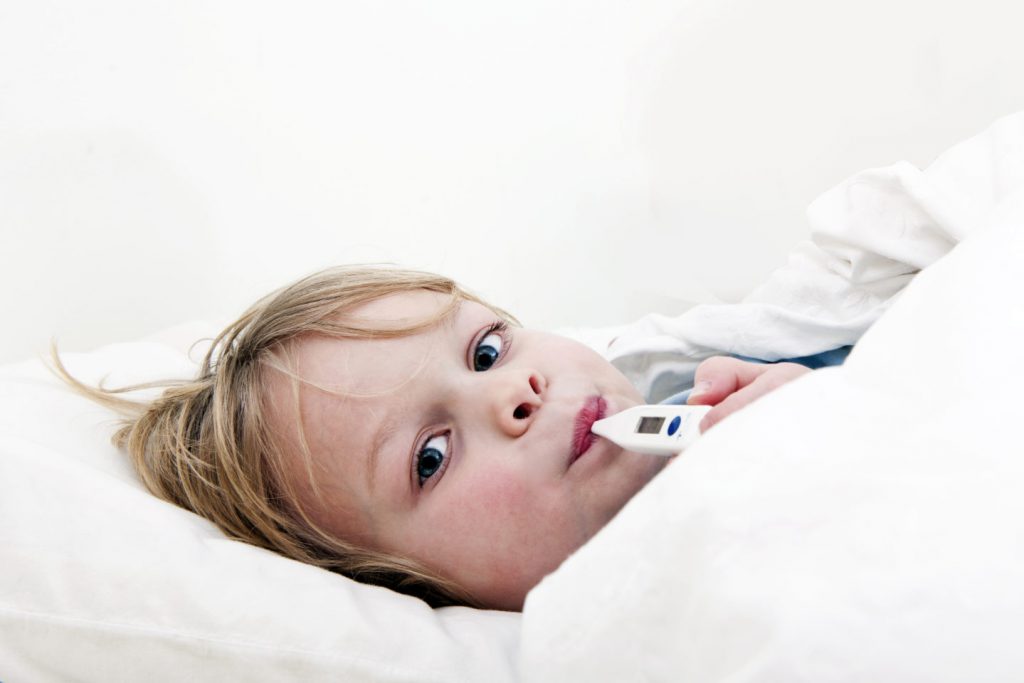
Fevers are more frightening than they are harmful; they are usually a sign that the body is fighting an infection. The main reason to treat a fever is if your child is miserable or in pain. Fever, by itself, does not cause damage to the brain or other organs.
What causes fever?
- Viral Infections are most common and don’t require antibiotics.
- Bacterial Infections, which are treated with antibiotics.
- Post vaccine, which can cause temperatures up to 39.5c (103.1f) usually lasting for 24-48 hours.
What is a normal temperature?
A normal temperature ranges from 36.4c – 37c (98F). Temperatures taken in the ear are reasonably accurate (rectal temperature is the most accurate and measuring the temperature on the forehead is the least accurate.) Temperatures may vary during the day even in healthy children. Doctors define a fever as 38C (100.5f) or above. You do not need to give any medication unless your child is miserable. Fever medications are not a treatment and will not alter the course of the illness, but they make your child comfortable whilst their body is fighting the infection. The fever seen in common childhood infections is not harmful. Fever helps the body’s system fight off infection.
Managing fever at home
- Antipyretics – Paracetamol is a medication that relieves pain and lowers fever. There are many brand names including Calpol, Panadol, Tylenol. This can be given every 4 hours but not more than 4 doses should be given in 24 hours.
- Ibuprofen can also be used to relieve fever and pain, but is a non steroidal anti-inflammatory medication so it works via a different pathway in the body. Brand names include Nurofen, Advil and Motrin, up to 3 doses per day.
For both these medications the dose should be calculated by weight, so it is best to follow your doctor’s prescription. Read the labels carefully as the Paracetamol comes in different strengths. The above-mentioned medications can be alternated if necessary.
(Aspirin should never be used in children as it can cause Reyes syndrome)
- Give your child plenty to drink to help prevent dehydration; offer frequent small amounts of clear fluids.
- Plenty of rest
- Keep the room temperature about 21C to 23c (70f to 74f)
- Dress your child in light loose fitting clothing (they may look like they are shivering when they have a fever but try not to overdress or wrap in blankets as this can make them hotter)
- Cold compress, using water that is at room temperature.
When to see a doctor
- Changes in your child’s behaviour- irritable, floppy, drowsy, unresponsive.
- Under 6 months with fever 38c and above.
- Fever longer than 5 days.
- Vomiting, diarrhea and refusing to drink; impending dehydration with poor urine output.
- Non blanching rash.
- Fits/ seizures.
- Problems with breathing.
- Watch your child for any signs their illness is getting worse.
- Complaining of stiff neck or light hurting eyes.
If you would like to consult with a doctor, please book online or call +65 6733 4440.



































